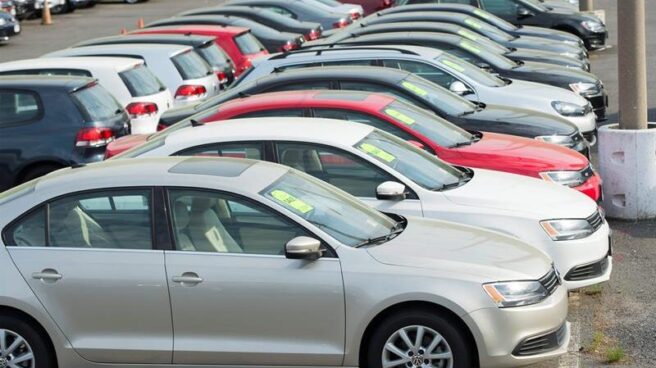

Image of various vehicles from a street dealership
The inclusion of synthetic fuels is key to overcoming the ban on internal combustion engines. This Saturday, European Commission Vice President for the European Green Pact Frans Timmermans announced an agreement with Germany to lift the ban on internal combustion engines in 2035.
“We have reached an agreement with Germany on the future use of synthetic fuels in cars,” Timmermans said on his Twitter account.
Brussels has mentioned a possible fit of synthetic fuels as part of negotiations to ban the sale of internal combustion vehicles in the European Union (EU) from 2035, a measure that has been paralyzed by the German government’s desire to include this type of fuel in the treaty.
The ban on the sale of vehicles with internal combustion engines, including petrol, diesel and hybrid vehicles, has been postponed from 2035 without a new date due to last-minute doubts raised by Germany and Italy and that this could jeopardize the adoption of a new standard that is part of a climate package that the EU wants to promote in this legislature to cut pollutant emissions in the bloc by at least 55% over the 2030 horizon and relative to 1990 emissions.
The measure had already been approved at the plenary meeting of the European Parliament on February 14, but it was in the negotiations at the ambassadorial level that Germany showed its reluctance towards the agreement between the institutions, which was already agreed last autumn.
“Now we are going to work to ensure that CO2 emission standards for cars are adopted as soon as possible,” Timmermans added, before warning that the legal framework for synthetic fuels would only be developed once the main agreement was unlocked and accepted. 27.
Source: El Independiente